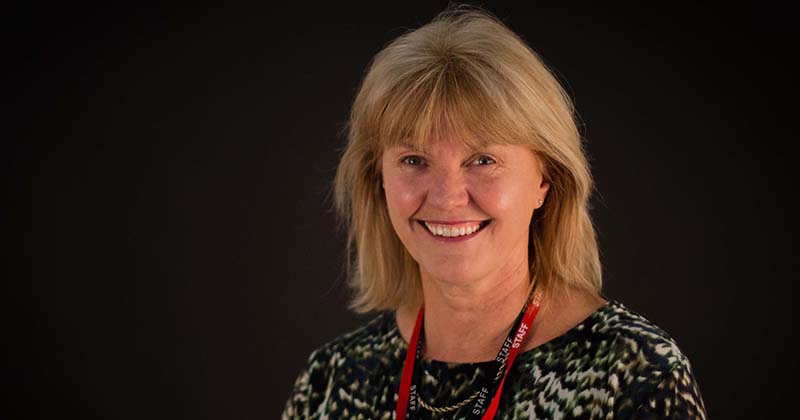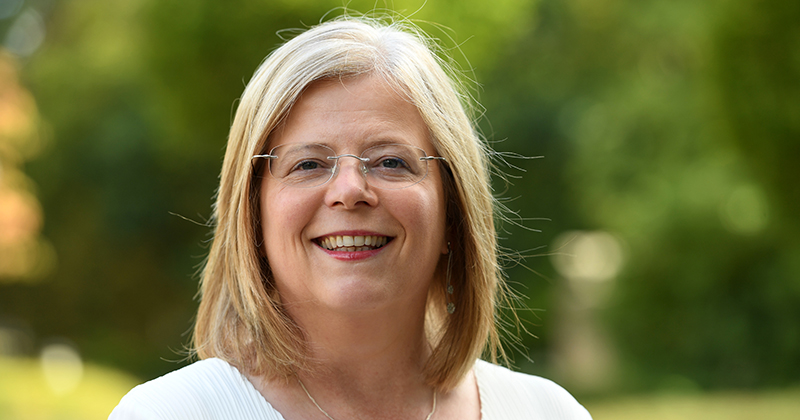This year numerous top female college principals are stepping down after giving their professional lives to the FE sector.
Jess Staufenberg sits down with three of them, all of whom have been awarded OBEs and been nationally recognised for their pioneering work. What are the highs and lows of leadership?
Karen Dobson, chief executive, Newcastle and Stafford Colleges Group

- Tell us a bit about your background
I was born in Stoke-on-Trent, and my mum worked in a pottery factory and my dad was a lathe engineer. My secondary school had been a boys’ school and I was in the first year it went comprehensive. Looking back, I don’t think they had much interest in what the girls were going to do as a career. Some teachers were pretty horrendous – there was still the cane and the slipper and people throwing blackboard rubbers at you – but I had a really good history teacher, and generally pretty good sports teachers. After school I went to The Elms, which is now part of Stoke-on-Trent College, and then I went to work in a bank, which I absolutely hated. So I trained as a nurse. After that, I taught in the health and social care department at Cauldon College, which later became Stoke-on-Trent College.
- What do you remember about your principal’s interview?
I came to the old Newcastle-under-Lyme College as director of curriculum, under Frances Wittering, the principal, who was a great role model. When she retired, I applied. I remember the chair telling me I’d got the job, and I probably looked a bit shocked. I was pleased, but you do think, ‘oh god, what do I do now?’.
- What’s changed among the students?
Some young people nowadays almost face more challenges than when I started in FE. I think there’s almost too much out there about what the ideal young man or woman should be. You have to be quite strong not to just follow. I think there’s probably also something about today’s young people not being as resilient. There aren’t many opportunities to be on your own, fall down and recover. But I don’t think we can blame young people for that – we as adults have made the world that way for them.
- What’s been the biggest change in FE policy?
The biggest single change has to be in adult learning. When I came into FE, adult education was a big thing that was properly funded. Evening school was much more of a routine for many adults. In the past 10 years or more, the removal of funding means FE colleges now have far fewer adults in them.
- What has been your biggest challenge or darkest moment?
Probably Covid – closing up on March 20. You didn’t know what was going to happen. The other big challenge was when we took over Stafford College, which was a grade 4. It felt, for almost 12 months, every stone you turned over there was a problem. There were lots of sleepless nights. But it was absolutely the right thing. The students get a great learning experience there now.
- What will you look back on most proudly?
I was really proud of our new building at Newcastle College, which we opened in 2010. It shows what difference you can make to the lives of young people when they can come into a fantastic building. And then in 2019, we got Ofsted ‘outstanding’. I cried. The lead inspector gave me a big hug. The team were just brilliant.
Tenure: 2004-2022
Replacement principal: Craig Hodgson, current vice principal for finance.
Retirement plans: Gardening, playing tennis and perhaps volunteering with the college’s Institute of Technology.
Julie Mills, group principal, Milton Keynes College

- Tell us a bit about your background
I grew up in Bedfordshire, where at the time schools didn’t have sixth forms, so it was either FE college or work. I went to Luton sixth form college for A levels, really didn’t enjoy it and left to get a job. My mum was a teacher and my dad was an engineer, and they were surprised I wasn’t following my brother to university. But instead I worked in the unemployment benefit office. Some people were in desperate circumstances, but some were retired bankers getting their national insurance paid. It was an early awakening for me about just how different people’s lives could be. Later, I did an Open University degree and taught a bookkeeping course. Then in 1990 I got a job as a finance lecturer at Milton Keynes College.
- What do you remember from your interview?
They asked me, ‘what would you do if the rest of your senior team disagreed with you?’ So I said that given they would be experts in finance, HR and so on, I would listen to them. But the board wanted to know I was assertive, and I’d persuade them. Isn’t that interesting? A macho person would have given a ‘better’ response. However, I’d stand by my answer now.
- How did you get into prison education?
Before Milton Keynes College I’d worked in training with NACRO, for the resettlement of offenders, helping them get employed. Then, when I was at Milton Keynes College, the college had a contract with Woodhill Prison and I got a job there as deputy head of education. I worked with some of the nation’s most notorious and violent offenders, but the mantra I have is, these people are someone’s family.
- What are your biggest lessons from leadership?
Leadership is all about relationships, it’s all about using power right. Prisons are really good examples of how it can happen well, and badly. It’s a really good place to learn to be a leader.
The biggest lesson is that it’s not about winning. For prisoners, their world is so small that the smallest things can become massive and you need to respect that. So in terms of conflict, whether it’s an angry member of staff, student or stakeholder, it’s not about winning by asserting yourself, it’s about de-escalating. It’s about maturity.
- What’s changed the most in FE?
I think the nature of FE has changed significantly because of austerity. Many colleges used to be quite a mixed environment, with adults. There’s a risk now they feel a much younger-person place. Workload is also significantly higher, and that is linked to funding too. When I started in FE, a full-time course would be 24 hours a week, and now it’s 15 or 16. But the qualification hasn’t changed. So there’s twice the number of students for staff and less time to support them in. It’s really important that’s understood by senior leaders.
- What are you proudest of?
Probably securing the Institute of Technology funding. We’re reaching parts of the community that classic FE and classic HE never has in this area before.
Tenure: 2011-2022
Replacement principal: Recruitment process underway
Retirement plans: Flip flops and shorts for the rest of my life.
Corienne Peasgood, principal, City College Norwich

- Tell us a bit about your background
I grew up just outside Cambridge; my mum worked in office administration and my dad was a plumber. I was lucky enough to get a scholarship to the private Perse School for girls, but when I told the careers adviser I wanted to be a plumbing and heating engineer, she made it clear that was not appropriate. That made me even more determined. At speech day, they read out where everyone was going to university and they got to me and just said, ‘Corienne is leaving’. I did a plumbing apprenticeship, before running my dad’s company. Later we moved to Norwich and when I was 35 with children, I saw an advert for a plumbing lecturer at City College Norwich. I got it!
- What do you remember about your interview?
It was probably the most nervous I’d been for any roles I’d gone for, because I wanted it the most. At that point, I knew who I would be as a leader. Around the same time I was on an aspiring principals programme with Amanda Melton (Nelson & Colne College), and we’d both always worked in one college. People were implying we needed experience in other colleges, but I didn’t agree – I think there are huge advantages to having many of the roles in the organisation you’re going to lead. You need to build lots of external networks too.
- Which students will stick with you?
There’s a photo on the wall in my office of a student called Jared, who was with us for five years. He started on a part-time functional skills maths programme, and he left us with five A levels and is now going on to his doctorate at the University of East Anglia. Previously, his special educational needs had defined him in at school, but with us, he didn’t just flourish academically, he took on all the additional student activities. He became our student governor and we awarded him student of the year. He eventually won adult student of the year at the Association of Colleges awards at the House of Commons. His mum was in floods of tears.
- What changes have you seen in FE?
Our expectations around the quality of teaching and learning students receive is much higher now than when I started in 1997. I also don’t think there was that expectation for the wraparound and additional support, which is a change for the better.
- What’s been your biggest challenge or darkest moment?
Before Covid, I thought we’d done the toughest thing. We’d gone through a demerger and merger involving three institutions, three sets of lawyers, three sets of financial advisers, the FE commissioner’s office, ESFA and DfE. I honestly thought I’d never do anything that difficult again. But Covid was harder. It was such high stakes. We could do everything right, and someone could still get very, very ill.
- What are you proudest of?
I think as principals we’re custodians of organisations, aren’t we? You look at what you’re passing on, and I’m confident I’m passing on a very different college. It’s ready to respond to what’s next.
Tenure: 2012-2022
Replacement principal: Jerry White, current deputy principal
Retirement plans: Spending September in Italy. No plans after that!

















Your thoughts